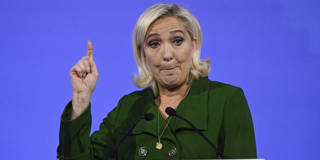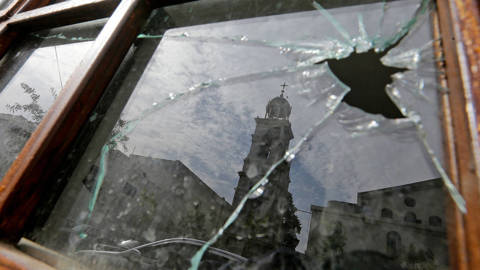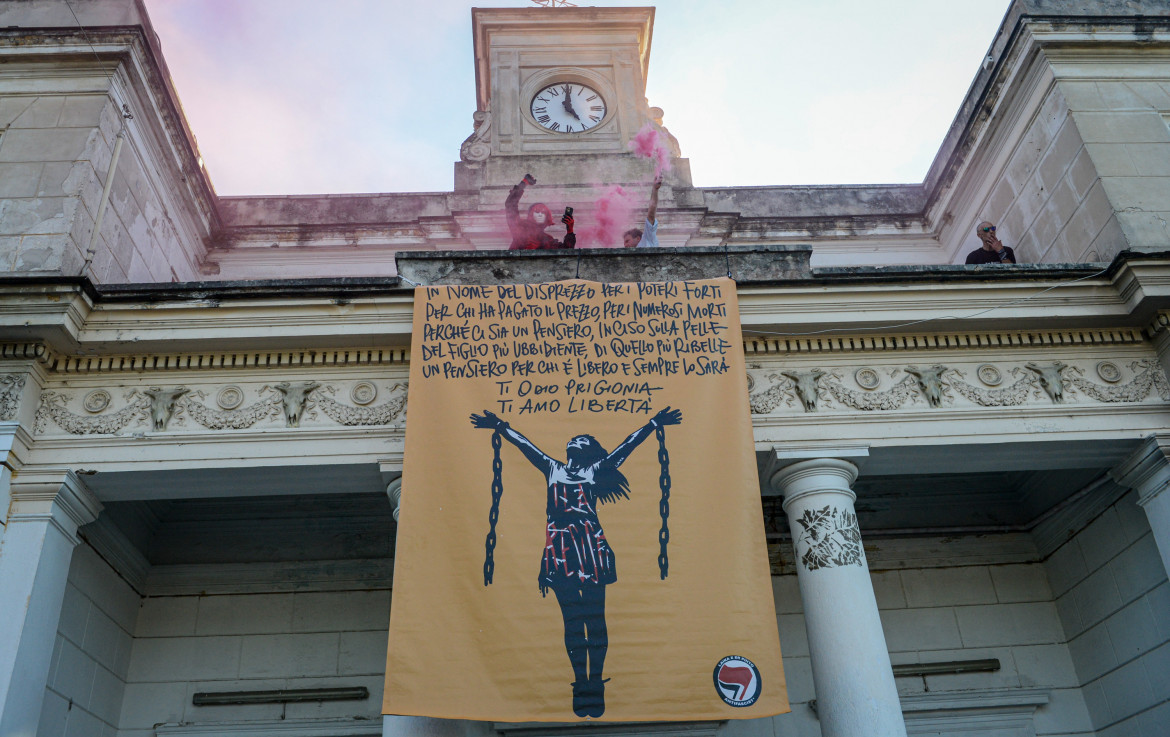
Jun 18, 2024
With mainstream parties and politicians already preparing to accommodate the far right following this month's European Parliament election, the axiom of post-World War II European democracy has been quietly abandoned. “No collaboration with fascists" is being replaced by a tacit acceptance of them.
LJUBLJANA – The surprise in this month’s European Parliament elections was that the outcome everyone expected really did come to pass. To paraphrase a classic scene from the Marx Brothers: Europe may be talking and acting like it is moving to the radical right, but don’t let that fool you; Europe really is moving to the radical right.

Anatomy of a Massacre
SHLOMO BEN-AMI considers what the 1860 massacre of Christians in Damascus can and cannot teach us about preventing genocide.
Why should we insist on this interpretation? Because most of the mainstream media has sought to downplay it. The message we keep hearing is: “Sure, Marine Le Pen, Giorgia Meloni, and Alternative für Deutschland (AfD) occasionally flirt with fascist motifs, but there is no reason to panic, because they still respect democratic rules and institutions once in power.” Yet this domestication of the radical right should trouble us all, because it signals a readiness by traditional conservative parties to go along with the new movement. The axiom of post-World War II European democracy, “No collaboration with fascists,” has been quietly abandoned.
The message of this election is clear. The political divide in most EU countries is no longer between the moderate right and the moderate left, but between the conventional right, embodied by the big winner, the European People’s Party (comprising Christian democrats, liberal-conservatives, and traditional conservatives) and the neo-fascist right represented by Le Pen, Meloni, AfD, and others.
The question now is whether the EPP will collaborate with neo-fascists. European Commission President Ursula von der Leyen is spinning the outcome as a triumph of the EPP against both “extremes,” yet the new parliament will include no left-wing parties whose extremism is even distantly comparable to that of the far right. Such a “balanced” view from the EU’s top official sends an ominous signal.
When we talk about fascism today, we should not confine ourselves to the developed West. A similar kind of politics has been ascendant in much of the Global South as well. In his study of China’s development, the Italian Marxist historian Domenico Losurdo (also known for his rehabilitation of Stalin) stresses the distinction between economic and political power. In pursuing his “reforms,” Deng Xiaoping knew that elements of capitalism are necessary to unleash a society’s productive forces; but he insisted that political power should remain firmly in the hands of the Communist Party of China (as the self-proclaimed representative of the workers and farmers).
This approach has deep historical roots. For over a century, China has embraced the “pan-Asianism” that emerged toward the end of the nineteenth century as a reaction against Western imperialist domination and exploitation. As historian Viren Murthy explains, this project has always been driven by a rejection not of Western capitalism, but of Western liberal individualism and imperialism. By drawing on pre-modern traditions and institutions, pan-Asianists argued, Asian societies could organize their own modernization to achieve even greater dynamism than the West.
While Hegel himself saw Asia as a domain of rigid order that does not allow for individualism (free subjectivity), pan-Asianists proposed a new Hegelian conceptual framework. Since the freedom offered by Western individualism ultimately negates order and leads to social disintegration, they argued, the only way to preserve freedom is to channel it into a new collective agency.
One early example of this model can be found in Japan’s militarization and colonialist expansion before WWII. But historical lessons are soon forgotten. In the search for solutions to big problems, many in the West could be newly attracted to the Asian model of subsuming individualistic drives and the longing for meaning in a collective project.
Pan-Asianism tended to oscillate between its socialist and fascist versions (with the line between the two not always clear), reminding us that “anti-imperialism” is not as innocent as it may appear. In the first half of the twentieth century, Japanese and German fascists regularly presented themselves as defenders against American, British, and French imperialism, and one now finds far-right nationalist politicians taking similar positions vis-à-vis the European Union.
The same tendency is discernible in post-Deng China, which political scientist A. James Gregor classifies as “a variant of contemporary fascism”: a capitalist economy controlled and regulated by an authoritarian state whose legitimacy is framed in the terms of ethnic tradition and national heritage. That is why Chinese President Xi Jinping makes a point of referring to China’s long, continuous history stretching back to antiquity. Harnessing economic impulses for the sake of nationalistic projects is the very definition of fascism, and similar political dynamics can also be found in India, Russia, Turkey, and other countries.
It is not hard to see why this model has gained traction. While the Soviet Union suffered a chaotic disintegration, the CPC pursued economic liberalization but still maintained tight control. Thus, leftists who are sympathetic toward China praise it for keeping capital subordinated, in contrast to the US and European systems, where capital reigns supreme.
But the new fascism is also supported by more recent trends. Beyond Le Pen, another big winner of the European elections is Fidias Panayiotou, a Cypriot YouTube personality who previously gained attention for his efforts to hug Elon Musk. While waiting outside Twitter’s headquarters for his target, he encouraged his followers to “spam” Musk’s mother with his request. Eventually, Musk did meet and hug Panayiotou, who went on to announce his candidacy to the European Parliament. Running on an anti-partisan platform, he won 19.4% of the popular vote and secured himself a seat.
Similar figures have also cropped up in France, the United Kingdom, Slovenia, and elsewhere, all justifying their candidacies with the “leftist” argument that since democratic politics has become a joke, clowns might as well run for office. This is a dangerous game. If enough people despair of emancipatory politics and accept the withdrawal into buffoonery, the political space for neo-fascism widens.
Reclaiming that space requires serious, authentic action. For all my disagreements with French President Emmanuel Macron, I think he was correct to respond to the French far right’s victory by dissolving the National Assembly and calling for new legislative elections. His announcement caught almost everyone off guard, and it is certainly risky. But it is a risk worth taking. Even if Le Pen wins and decides who will be the next prime minister, Macron, as president, will retain the ability to mobilize a new majority against the government. We must take the fight to the new fascism as forcefully and as fast as possible.
THUMBNAIL LE PEN Horacio Villalobos/Corbis/Getty Images

SLAVOJ ŽIŽEK
Writing for PS since 2022
33 Commentaries
Follow
Slavoj Žižek, Professor of Philosophy at the European Graduate School, is International Director of the Birkbeck Institute for the Humanities at the University of London and the author, most recently, of Christian Atheism: How to Be a Real Materialist (Bloomsbury Academic, 2024).




